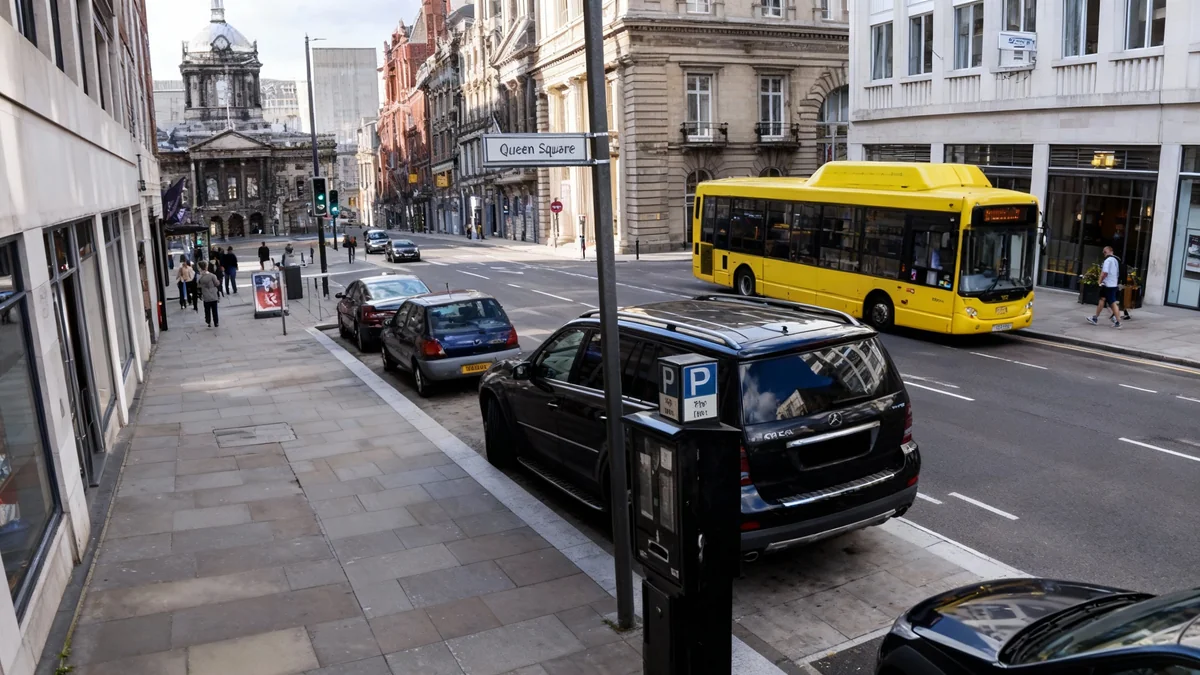An ambitious plan to create a new town in north Liverpool has been dealt a significant blow after the government declined to shortlist it for 'New Town Status'. The decision came as the city was hosting the national Labour Party Conference, showcasing its decades of successful waterfront regeneration.
The 'Liverpool North' project, a major initiative proposed by Liverpool City Council, aimed to transform a 5km stretch of land with thousands of new homes but failed to advance in the government's selection process. Local leaders have expressed deep frustration but remain committed to the area's renewal.
Key Takeaways
- The 'Liverpool North' regeneration project was not shortlisted for government 'New Town Status'.
- The proposal aimed to build thousands of homes on brownfield sites from the city centre to Bootle.
- The announcement coincided with Liverpool hosting the Labour Party Conference at its successfully regenerated waterfront.
- Local political leaders, including Mayor Steve Rotheram, have criticised the decision but vowed to find alternative ways to fund the project.
- The rejection highlights the growing housing crisis in the city, with private rents rising by £301 per month since 2015.
Government Rejects Liverpool North Bid
Liverpool City Council's proposal for a large-scale urban regeneration project, named 'Liverpool North', has been officially omitted from the government's shortlist for 'New Town Status'. The decision was confirmed on the first day of the Labour Party's annual conference, held in the city.
The government announced a final list of 12 bids that would proceed to the next stage, with the Liverpool plan notably absent. This status would have unlocked significant support and investment for the transformative scheme.
The Vision for Liverpool North
The 'Liverpool North' initiative was designed as a comprehensive plan to revitalise a vast corridor stretching 5km from the northern edge of the city centre through Everton, Anfield, and Kirkdale, extending into Bootle. The core of the proposal was the development of numerous brownfield sites to create thousands of modern, high-quality homes.
Key infrastructure projects, including Everton FC’s new stadium at Bramley-Moore Dock and the £20 million Bootle New Strand development, were integral parts of this overarching vision. The project was presented as a once-in-a-generation opportunity to address housing shortages and bring investment to areas that have faced long-term neglect.
A Week of Contrasting Fortunes
The timing of the government's decision created a stark contrast for the city. While officials were learning of the setback, Liverpool's waterfront was bustling with activity, hosting thousands of delegates, politicians, and journalists for the Labour Party Conference at the ACC Liverpool.
The Waterfront's Four-Decade Transformation
Liverpool's waterfront has undergone a dramatic revival over the past 40 years. In the 1980s, areas like the Albert Dock were derelict, scarred by wartime damage and post-industrial decline. The Merseyside Development Corporation, with backing from figures like Michael Heseltine, initiated the transformation. This momentum was significantly boosted by Liverpool's tenure as European Capital of Culture in 2008, which coincided with the opening of the Arena and Convention Centre (ACC).
The conference, held in Liverpool for the fourth consecutive year, showcased the city's capacity to host major international events. The vibrant Albert Dock and Pier Head, once symbols of decline, now stand as prime examples of successful, long-term urban regeneration. This success story, however, was overshadowed by the government's rejection of the city's next major renewal project.
Local Leaders Express Frustration
The decision not to shortlist 'Liverpool North' drew immediate criticism from local political figures across party lines. Many saw it as a missed opportunity to apply the lessons learned from the waterfront's success to another part of the city in desperate need of investment.
Liverpool's Liberal Democrat leader, Cllr Carl Cashman, strongly condemned the move, stating, “This is a disgrace. Labour leaders told us that Liverpool’s best chance was having Labour in power from the town hall to Westminster. Well, we’ve got that now - and still Liverpool is snubbed.”
“The North New Town project was a once-in-a-generation chance to regenerate huge swathes of our city. Instead, Labour's government has turned its back, proving once and for all that their promises to Liverpool are hollow.”
Steve Rotheram, the Labour Mayor of the Liverpool City Region, also voiced his disappointment. He described the outcome as "incredibly frustrating."
"This is one of the biggest regeneration opportunities in the country — and today’s decision is a missed chance for government to back communities that have been overlooked for far too long," Mayor Rotheram stated.
Focus on the City's Housing Crisis
Despite the setback, both Mayor Rotheram and Liverpool City Council leader Liam Robinson have affirmed their commitment to pursuing the regeneration of north Liverpool. The need for the project is underscored by the city's escalating housing crisis.
Liverpool's Soaring Rental Market
According to recent data, Liverpool is experiencing significant pressure on its housing market. In the year to August 2025, average private rents in the city increased by £75 per month, reaching £864. This represents a staggering £301 monthly rise since 2015, making it increasingly difficult for residents to afford housing and save for deposits.
The 'Liverpool North' plan was seen as a direct solution to this problem. By developing disused brownfield sites, the project intended to increase the supply of quality homes, potentially making homeownership more accessible for thousands of families and providing much-needed investment in local infrastructure.
While the city's leaders explore alternative routes to bring the vision to life, the government's decision has raised questions about its commitment to levelling up areas that require large-scale, long-term support. For now, the successful regeneration of the waterfront serves as both an inspiration and a poignant reminder of what could have been for the city's northern districts.





